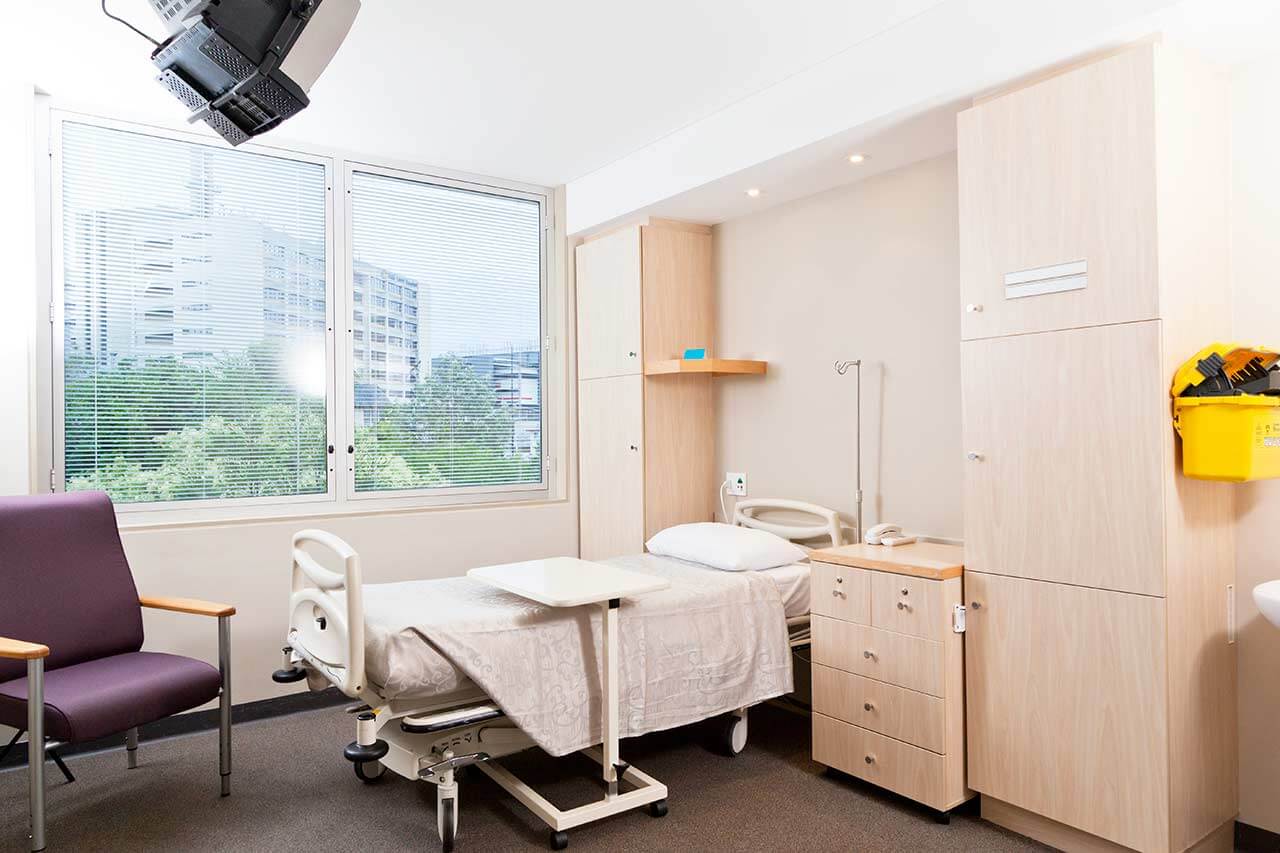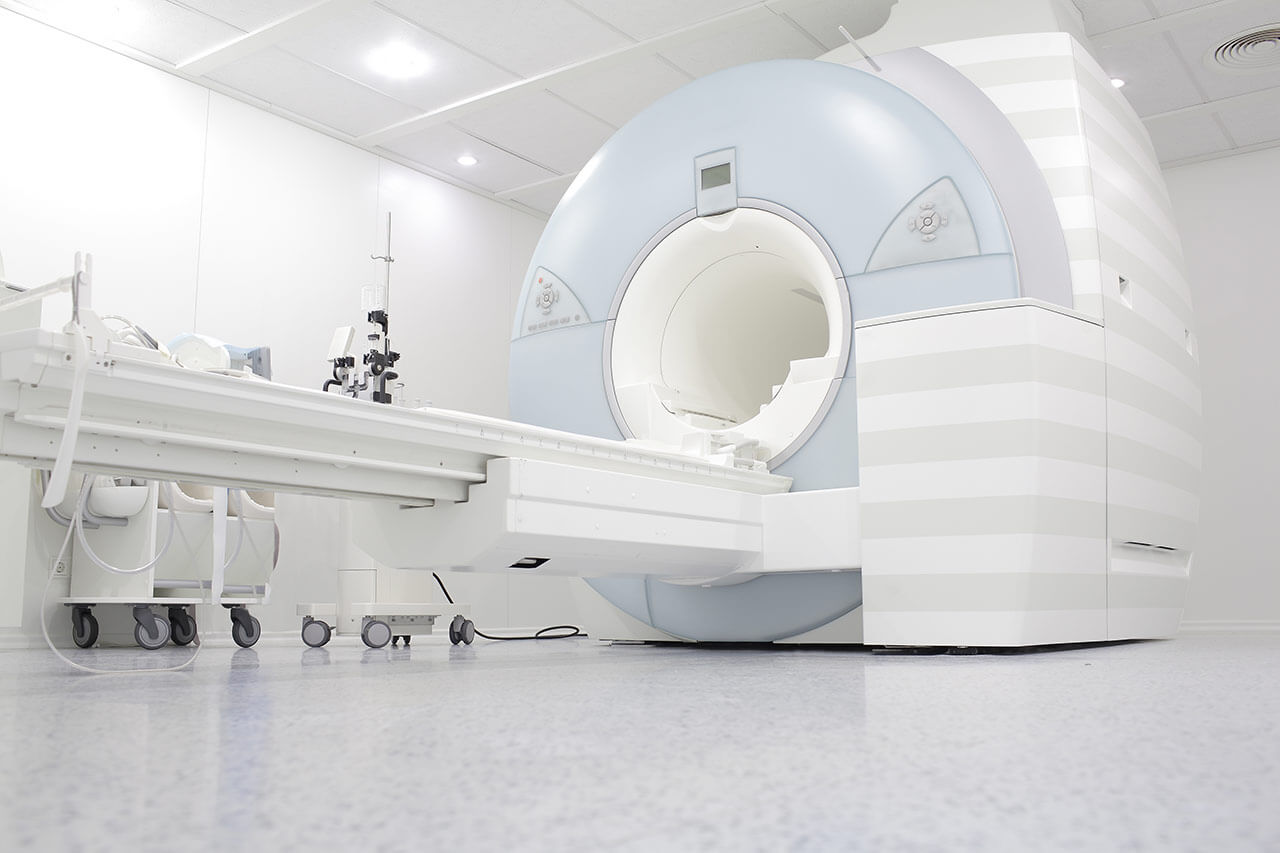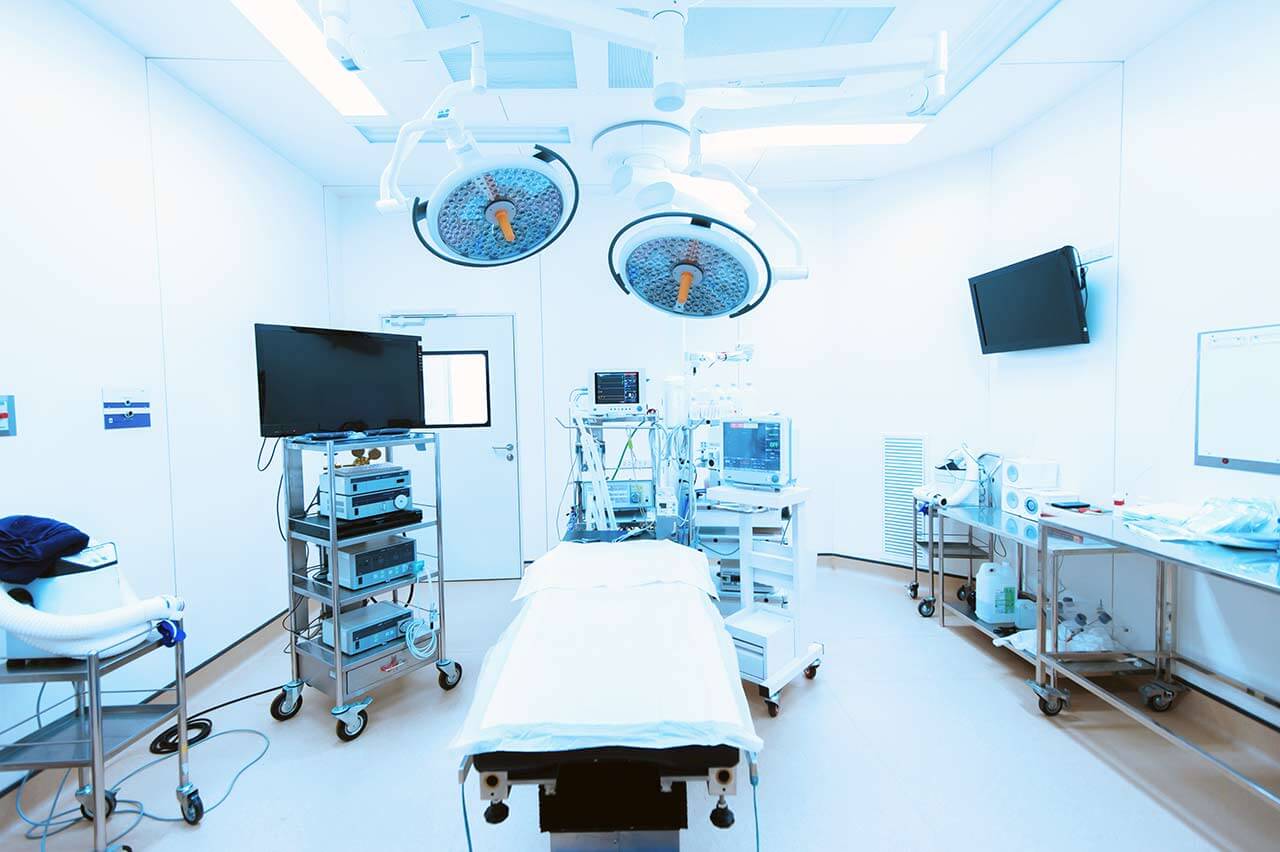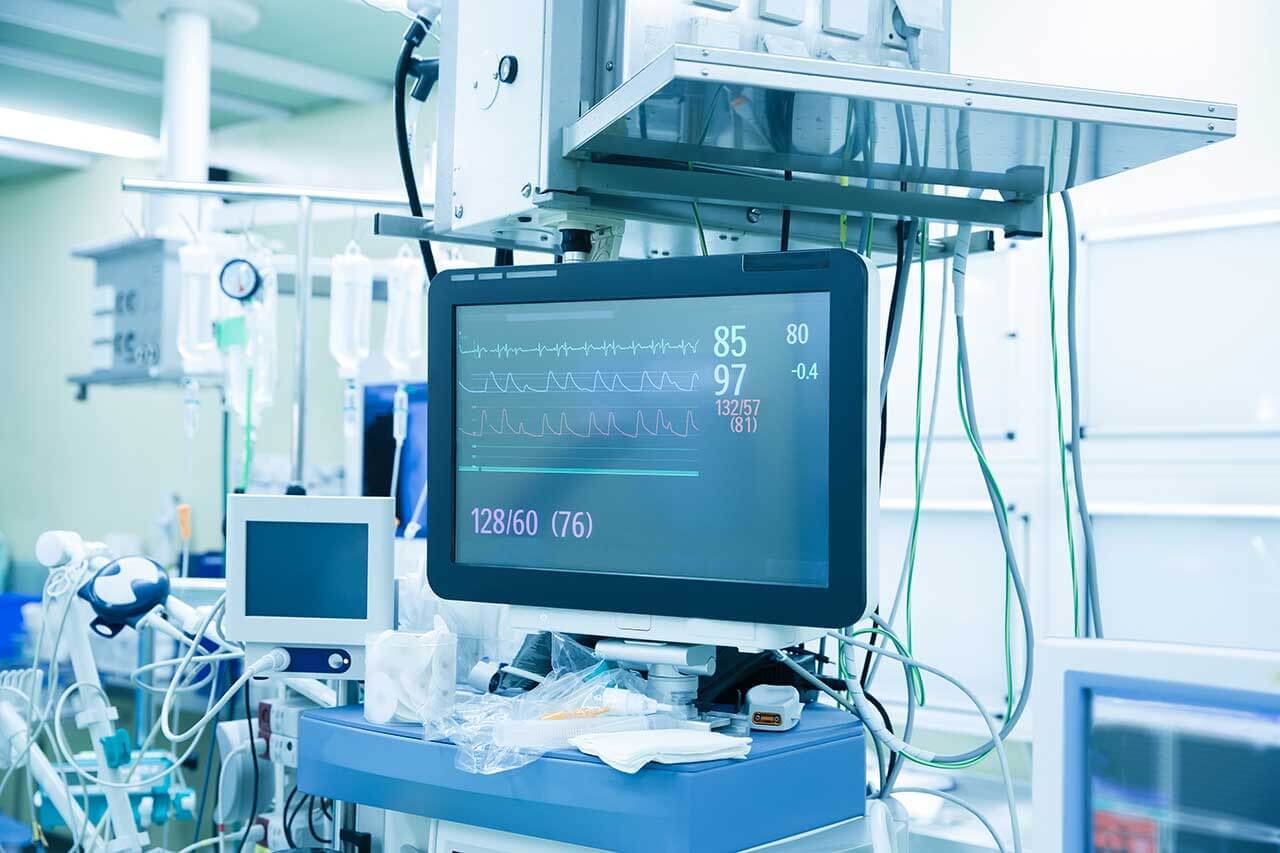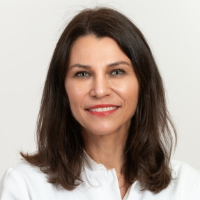
The program includes:
- Initial presentation in the clinic
- clinical history taking
- review of medical records
- physical examination
- laboratory tests:
- complete blood count
- general urine analysis
- biochemical blood test
- inflammation markers (CRP, ESR)
- blood coagulation analysis (aPTT, PT, INR)
- tumor markers (CEA, CA19-9, AFP, CA125)
- gynecological examination:
- colposcopy
- vaginal swab
- biopsy with histological study (if clinically indicated, additional cost is 2500€)
- pelvic ultrasound
- transvaginal ultrasound
- breasts ultrasound
- ultrasound examination of the abdomen
- CT/MRI of the abdomen and pelvic organs (if clinically indicated, additional cost is 650/1200€)
- nursing services
- consultation of related specialists
- treatment by chief physician and all leading experts
- explanation of individual treatment plan
Required documents
- Medical records
- MRI/CT scan (not older than 3 months)
- Biopsy results (if available)
Service
You may also book:
 BookingHealth Price from:
BookingHealth Price from:
About the department
The Department of Gynecology, Mammology and Obstetrics at the University Hospital Rechts der Isar Munich offers the full range of services in these fields, providing patients with the optimal treatment based on the very latest scientific advances and innovative technologies. The department's tasks include diagnostics and treatment of all gynecologic diseases and breast pathologies, as well as pregnancy management, childbirth and postnatal care for both mother and baby, elimination of fertility problems in women. The department has modern equipment for invasive and non-invasive diagnostics, three operating rooms equipped with state-of-the-art technology, especially in the field of minimally invasive and robot-assisted surgery, as well as special devices for microsurgery and fetal surgery. A competent medical team consisting of 18 senior physicians, 25 assistant physicians and medical specialists, obstetricians and specially trained nursing staff annually admits approximately 5,000 women for inpatient treatment and provides outpatient medical care for 14,000 patients. In addition, the department has four maternity rooms, in which about 2,000 babies are born annually.
The Head Physician of the department is Prof. Dr. med. Marion Kiechle. The doctor has over 20 years of successful clinical practice and has saved thousands of lives. The professor has vast experience in helping women with cancer of the reproductive system and breast. Her achievements in clinical practice have been recognized with prestigious awards, including the Order of Merit of the Federal Republic of Germany. Dr. Kiechle's contribution to the scientific literature is more than 260 publications in national and international journals.
The department's gynecologists pay special attention to the prevention, diagnostics and treatment of female reproductive cancers. For this purpose, the department has a highly specialized center, whose specialists deal with the treatment of cervical, ovarian, fallopian tube, vulvar and vaginal cancers. The center collaborates with doctors of related specialties, including gynecologists, surgeons, oncologists, radiation therapists, radiologists, specialists in the field of nuclear medicine, psychologists. To make an accurate diagnosis, a comprehensive examination is carried out, which may include smear sampling, biopsy, colposcopy, ultrasound scanning, computed tomography (CT), magnetic resonance imaging (MRI), positron emission tomography (PET). The department's specialists gather for an interdisciplinary board three times a week, during which they cooperatively study the diagnostic results and prescribe the optimal course of treatment based on the type of cancer, its stage, tumor location, the presence or absence of metastases, the patient's age and other indicators. As a rule, the first-line therapy for gynecologic cancers is a surgical resection of a malignant tumor or an organ affected by the oncological process. The department's doctors have a perfect command of modern surgical techniques, including minimally invasive and robot-assisted ones, so patients can count on the operation to be effective and as sparing as possible. Chemotherapy, hormone therapy, antibody therapy, radiation therapy, and other conservative treatment methods are often prescribed in addition to surgery. Women suffering from oncology also receive psychological assistance, since such a diagnosis affects the psycho-emotional state, which negatively affects the therapeutic process.
Breast cancer is one of the most common types of oncology in women, so the department's doctors offer a wide range of diagnostic and therapeutic options for its treatment. The main treatment for breast cancer is surgery to remove the tumor or the entire breast. The volume and complexity of the surgical intervention depend on the size of the neoplasm, the stage and location of cancer, the presence of metastatic lesions, and woman's general health condition. Many women are worried about their appearance after surgery, therefore, the department performs reconstructive interventions to restore an attractive appearance of the breasts. To replenish the size and shape of the breast, plastic surgeons use the patient's own tissues, implants and lipofilling techniques.
The department also offers high quality obstetric services. More than 2,000 babies are born here every year. Each delivery room has a unique atmosphere with specially controlled lighting, music and fragrances. Pregnant women can choose the position for childbirth themselves, water birth is also possible. The department has a team of nurses, obstetricians and at least one senior physician and two assistant physicians on duty around the clock. There is a state-of-the-art operating room in the immediate vicinity of the delivery rooms where all the necessary obstetric operations and fetal surgery are performed. The intensive care unit for premature babies is also located nearby, so doctors can provide patients with comprehensive medical care of excellent quality.
The department's key clinical focuses include:
| Gynecology |
|
| Mammology |
|
| Obstetrics |
|
| Other medical services |
Curriculum vitae
Prof. Dr. med. Marion Kiechle is the Head of the Department of Gynecology, Mammology and Obstetrics at the University Hospital Rechts der Isar Munich. In 1986, she received admission to medical practice, and in 1987, she defended her doctoral thesis in Freiburg. This was followed by a scholarship from the German Research Foundation (1987-1989). At the same time, the doctor worked at the Biomed Cancer Center, the Research Center in the United States, for one year. After working as a Research Fellow and becoming a Professor at the University of Freiburg in 1995, Dr. Kiechle moved to Kiel, where she held the position of Senior Physician in the Department of Gynecology at the University Hospital Kiel (1996 - 2000). Since October 2000, Prof. Kiechle has been the Head of the Department of Gynecology, Mammology and Obstetrics at the University Hospital Rechts der Isar Munich. In addition, Prof. Kiechle is a Board Member of the German Society for Gynecology and Obstetrics (DGGG) and holds the position of Extraordinary Professor at the University of Kiel. From March to November 2018, Prof. Kiechle served as a Minister of Science and Arts in the Federal State of Bavaria.
Dr. Kiechle's research activities are focused on gynecologic oncology, with a particular focus on hereditary cancers in women and the identification of individual cancer therapy goals. Clinical trials are also devoted to the diagnostics, therapy and prevention of gynecologic cancers.
In addition, Prof. Marion Kiechle has received many awards and honors, including the Order of Merit of the Federal Republic of Germany (2007), the Schmidt‐Mathiessen Prize of the Working Group on Gynecologic Oncology of the German Society for Gynecology and Obstetrics (1998). In 2002, she was appointed a Deputy Chairperson of the Main Commission for the Ethics of Stem Cell Research under the federal government, and in 2001, she was appointed a Chairperson of the Bioethics Commission of the Federal State of Bavaria.
Photo of the doctor: (c) Klinikum rechts der Isar der Technischen Universität München
Sources:
About hospital
The University Hospital Rechts der Isar Munich was founded in 1834. It combines long traditions with the very latest advances in modern medicine. The medical facility includes 33 specialized departments and 20 interdisciplinary centers, where patients can receive top-class medical care in all medical fields.
The hospital annually admits more than 65,000 inpatients for diagnostics and treatment, and about 250,000 outpatients receive effective medical care. The hospital also performs more than 40,000 surgical procedures every year, and about 2,100 babies are born here annually. One of the most significant achievements of the medical facility can be called the first transplantation of both arms above the elbow performed in 2008. The surgery that lasted 15 hours, and in which 40 doctors of various medical specialties took part, became a real sensation in the scientific world. Thanks to a unique surgical procedure, the doctors managed to give the patient new hands.
In addition, the employees of the hospital are actively involved in research activities, in which they study various diseases, as well as develop new therapeutic options for their treatment. It should be noted that the research institutes of the hospital are among the most reputable research organizations in the world. A striking example can be considered the Roman Herzog Comprehensive Cancer Center, whose specialists cooperate closely with the Comprehensive Cancer Center Munich in order to find new treatment methods for cancers.
The university hospital has a strict quality management system to maintain a high level of patient care. Since 2011, the hospital has been certified in accordance with DIN EN ISO 9001:2015 at the national and international level. The medical facility was also recertified by TÜV Rheinland in 2020.
The hospital annually provides medical services not only to German citizens, but also to thousands of patients from different countries of the world. This indicates that the hospital has an excellent reputation in the international medical arena and takes on the most complex clinical cases where other medical centers are unable to help the patient.
Photo: (с) depositphotos
Accommodation in hospital
Patients rooms
The patients of the University Hospital Rechts der Isar Munich live in comfortable single and double rooms with modern design. An accompanying person may stay with the patient in the single room. All patient rooms have an ensuite bathroom with shower and toilet. The furnishings of a standard patient room include an automatically adjustable bed, a bedside table for personal belongings, a table and chairs for receiving visitors, a wardrobe, a telephone and a TV. The patient rooms also have Wi-Fi.
The hospital also has enhanced-comfort rooms, corresponding to the level of a high-end hotel. Such patient rooms have additional amenities: a safe, a mini fridge and upholstered furniture.
Meals and Menus
The patients of the hospital are offered a balanced and healthy three meals a day: breakfast, lunch and dinner. The patients have a choice of three different menus for lunch – a classic full menu, as well as a dietary and vegetarian one. When cooking meals, the chefs comply with the current recommendations of the German Society for Nutritional Medicine (DGEM) and the German Nutrition Society (DGE).
If for some reason you do not eat all the foods, you will be offered an individual menu. The hospital also houses a cafeteria with a large assortment of hot and cold drinks, snacks and desserts.
Further details
Standard rooms include:
Religion
Religious services are available upon request.
Accompanying person
Your accompanying person may stay with you in your patient room or at the hotel of your choice during the inpatient program.
Hotel
You may stay at the hotel of your choice during the outpatient program. Our managers will support you for selecting the best option.
The hospital offers a full range of laboratory tests (general, hormonal, tests for infections, antibodies, tumor markers, etc.), genetic tests, various modifications of ultrasound scans, CT scans, MRI and PET / CT, angiography, myelography, biopsy and other examinations. Treatment with medications, endoscopic and robotic operations, stereotaxic interventions is carried out here, modern types of radiation therapy are also used. The hospital offers patients all the necessary therapeutic techniques.
- CAR T-cell therapy
- Autologous and allogeneic bone marrow transplantation
- Transcatheter aortic valve implantation (TAVI)
- Radical and organ-preserving interventions for kidney cancer
- Iridoplasty and iridotomy with Nd-YAG laser
These are acute and chronic leukemias, solid malignant tumors, heart failure, cardiac arrhythmias, heart valves stenosis and insufficiency, vasculitis, benign prostatic hyperplasia, pathologies of retina and vitreous body, Guillain-Barré syndrome, myasthenia gravis and other pathologies.
- Hematology and oncology
- Cardiology
- Nephrology
- Urology
- Ophthalmology
Over 877 highly qualified physicians work at the hospital.
